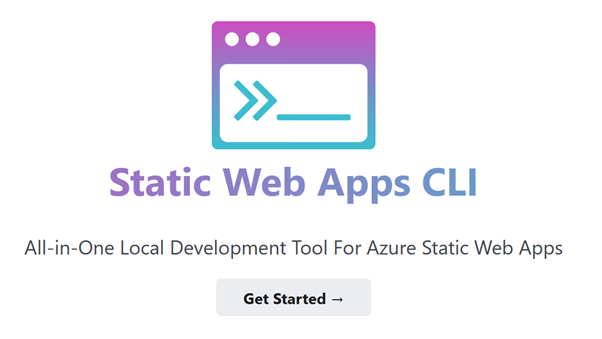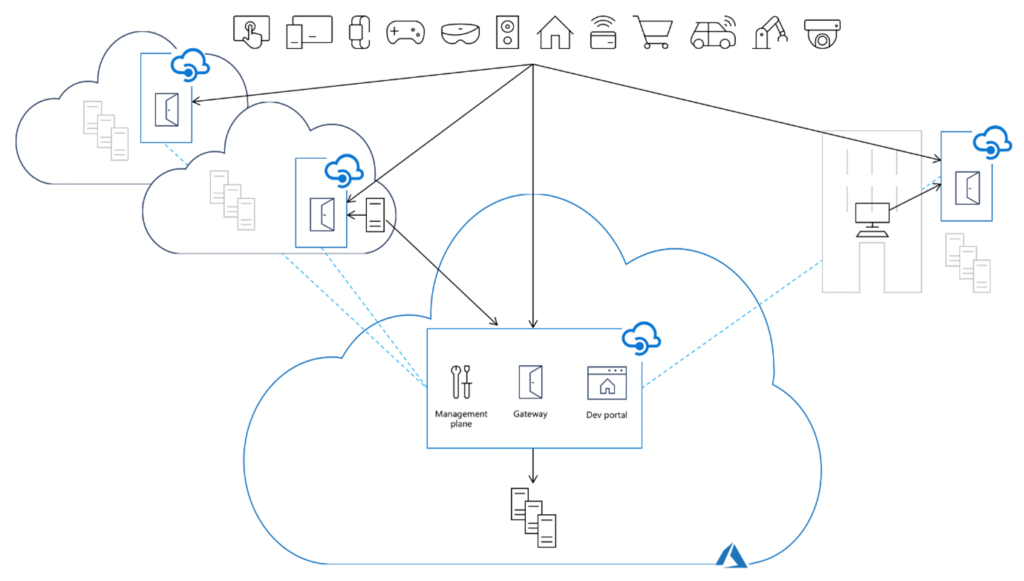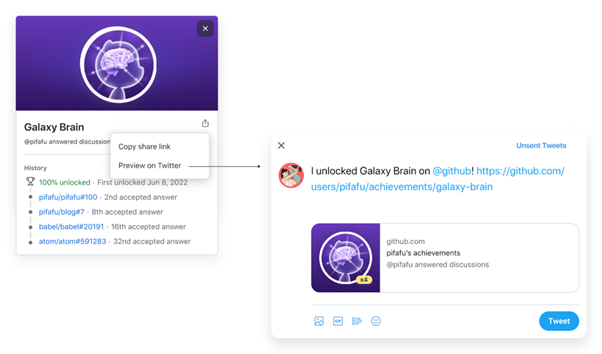Monthly Azure news June 2022
Welcome to the freshest updates, features, and previews of the Cloud Native Azure cosmos. In this edition, you will first read about our selection of generally available features, so that you can directly try them out. Second, there’s a sample of the recently public previews in the last month to watch out for what’s upcoming next to Azure.
Contents
- Easier access to get Microsoft artifacts and container images
- Azure DevOps: Upstreaming universal packages is now supported
- Azure SDK Release (June 2022)
- Azure SDK Release for Go
- Custom domains and TLS certificates in Azure Container Apps
- Static Web Apps CLI now available
- HTTP proxy support for AKS
- API Management self-hosted gateways for hybrid and multi-cloud environments
- Increase security with API Management Content Security Policy and CORS configuration support
- Durable Functions for Node.js
- Mount Azure Files and ephemeral storage in Azure Container Apps
- API Management authorizations
- Azure Cosmos DB enhancements
- AKS release tracker
- New API backend options in Azure Static Web Apps
- Phyton 3.10: Azure Functions support
- Kubernetes 1.24: Release supports AKS
- Azure App Service support for .NET-7
- Service Bus Explorer capabilities in the Azure Portal
- Unlock GitHub Achievements
General availabilities
Easier access to get Microsoft artifacts and container images
Microsoft presented a new portal for Microsoft Artifact Registry (previous Microsoft Container Registry). On this page, you can find all container images that were published in the primary registry from Microsoft. Although they are accessible through Docker Hub due to the partnership between Microsoft and Docker.
Azure DevOps: Upstreaming universal packages is now supported
Besides browsing artifacts, it is now also possible to share them more easily with universal packages. Azure Artifacts released this new opportunity to collaborate across different organizations. With up to 4 TB size limitation, you can now easily upstream and share your universal packages in your Azure DevOps Organisation. To do this you can add an Upstream source and use the Azure DevOps Services Feed locater. Further details are available here.
Azure SDK Release (June 2022)
General available are the June releases of Azure SDK too. So what new updates do we get?
First to mention is the new Azure SDK Management Libraries for Go as you can see in the next stand-alone topic. Furthermore, there are new Azure SDKs releases for Phyton and .NET as well. In these releases, they support Azure IoT Central, Azure Machine Learning, Applications Container, a stable release for the document Translator, and much more. If you want to know more just go here.
Azure SDK Release for Go
If you’re a Go developer this might be very interesting for you.
Now you can use the first stable version of the new Azure SDK for Go which was released the last month. You can now use a whole bunch of management actions at Azure resources and services like Identity, Key vault, Tables, and Service Bus. Here, you will find more information about the updates and features.
Custom domains and TLS certificates in Azure Container Apps
Try the new feature and secure your container apps with HTTPS and expose it with a custom hostname. With the custom domain certificates, you can now use your own domains and TLS certificates. Find further details here.
Static Web Apps CLI now available
Ready to learn something new and try out Azure Static Web Apps CLI? With Azure Static Web App CLI you can deploy your apps to the Azure Cloud locally via CLI or with any CI/CD platform. The CLI supports you with the following commands.
- swa init: configure and set up your project with automatic framework detection
- swa login: authentication and login to the Azure subscriptions
- swa deploy: deploy the project to the Azure Static Web App

HTTP proxy support for AKS
In environments where Internet access must be routed through HTTP proxies, there had been some issues when bootstrapping an Azure Kubernetes Service. This feature, now generally available, adds HTTP proxy support for AKS clusters that operators can use to secure AKS-required network traffic in proxy-dependent environments.
API Management self-hosted gateways for hybrid and multi-cloud environments
The API Management self-hosted gateways are now also supporting hybrid and multi-cloud environments. With this release, you can now efficiently and securely manage APIs hosted on-premises and in multiple clouds from a single API management service in Azure.
Increase security with API Management Content Security Policy and CORS configuration support
To improve security, support for the Content Security Policy has now been added for Azure API Management developer and self-hosted portals.
This is intended to prevent attacks such as cross-site scripting and data injection in developer portals. With the help of the CORS configuration, self-hosted portals can be supported regarding authentication and other checks without having to implement their own functions.
Durable Functions for Node.js
Now, hold on to your mouse, it’s getting fast! With the new version of durable Functions for Node.js, the time to orchestrate has dropped by 50% and larger workloads get improved faster runtime performance.
In the graphic, you can see the test setup with the fan-out-fan-in benchmark and the result. If you want to know more, check out version 2.0.0 or go to the release notes.
Public Previews
Look up today, what’s coming next!
Mount Azure Files and ephemeral storage in Azure Container Apps
Additional to the new features, Microsoft published a bunch of the next upcoming features. One of them is the ability to mount Azure files and use ephemeral storage in Azure Container Apps. This provides you to load large data into your container images without pushing it to the limits of size. With this feature, you can share, persist, and read the data by using Azure files.
API Management authorizations
This preview is about simplifying API Management authorizations for managing authorization tokens, based on the OAuth 2.0 standard. The function can support different authentication scenarios and is divided into an administration and a runtime part. Some examples:
- Connecting Power Apps and Power Automate based apps to SaaS providers that require OAuth 2.0
- Exposing APIs in API Management as a Logic Apps Custom Connector where the backend service requires OAuth 2.0
Azure Cosmos DB enhancements
The next three topics are about the Azure Cosmos DB.
- First of all, the storage limit increases from 50 GB to 1 TB. So, you get more storage for your database operations while you only have to pay for your consumed data.
- With this update, you will get a 16 MB limit instead of 2MB for your documents. This allows you to be more flexible with storing larger documents.
- You will also gain some backup enhancements. You will now be able to choose between one free and one paid option for your data backup.
- Free: Continuous data backup for seven days
- Paid: Continuous data backup for 30 days
AKS release tracker
The AKS Release Tracker allows customers to track specific component updates included in an AKS release, such as fixes delivered for a core add-on. The tracker not only provides real-time updates of the regional release status but also links to the specific version of the AKS release notes so customers can see which version is relevant to them. Use the AKS release tracker to:
- See AKS deployments in real time, every week by region
- See the flow of deployment (SDP) between one region to the next
- Get links from the page to the current and past release notes
New API backend options in Azure Static Web Apps
The Azure Static Web App has more features in this public preview. Two of them integrate security and seamless routing. Furthermore, it gains more API options like Azure API Management, App Service, and Container Apps in addition to the Azure Functions. You can link those options into your app’s API backend which (when active) are responding automatically to your resources.
Phyton 3.10: Azure Functions support
The new release for Phyton 3.10 with Azure Function is here and it came up with the new features. For example, you can develop Phyton 3.10 apps locally and deploy them to all Azure Function Plans. For more information, see the “What’s New In Python 3.10 documentation“.
Kubernetes 1.24: Release supports AKS
The Kubernetes release 1.24 is in the public preview and it brings AKS support with it. There are a total of 46 enhancements in this version. Check it out here.
Azure App Service support for .NET 7
In preparation for last month’s Microsoft Build 2022, the Azure App Service Team announced some new releases for it. Here to mention is the capability to run web apps by .NET 7 in Azure Service App. This is already released as an early-access feature so you can directly use it to deploy and scale your apps.
To gain more information look up the Apps on Azure Blog.
Service Bus Explorer capabilities in the Azure Portal
To easier manage your data, you can now use the Service Bus Explorer which now allows you to execute management operations such as creating, deleting, updating, and data operations like sending and receiving messages.
Get something extra
Unlock GitHub Achievements
GitHub announces the launch of achievements to their profiles. The achievements you collect should represent your way as a developer and show what milestones you have achieved. Find out more about it on the GitHub Blog.


